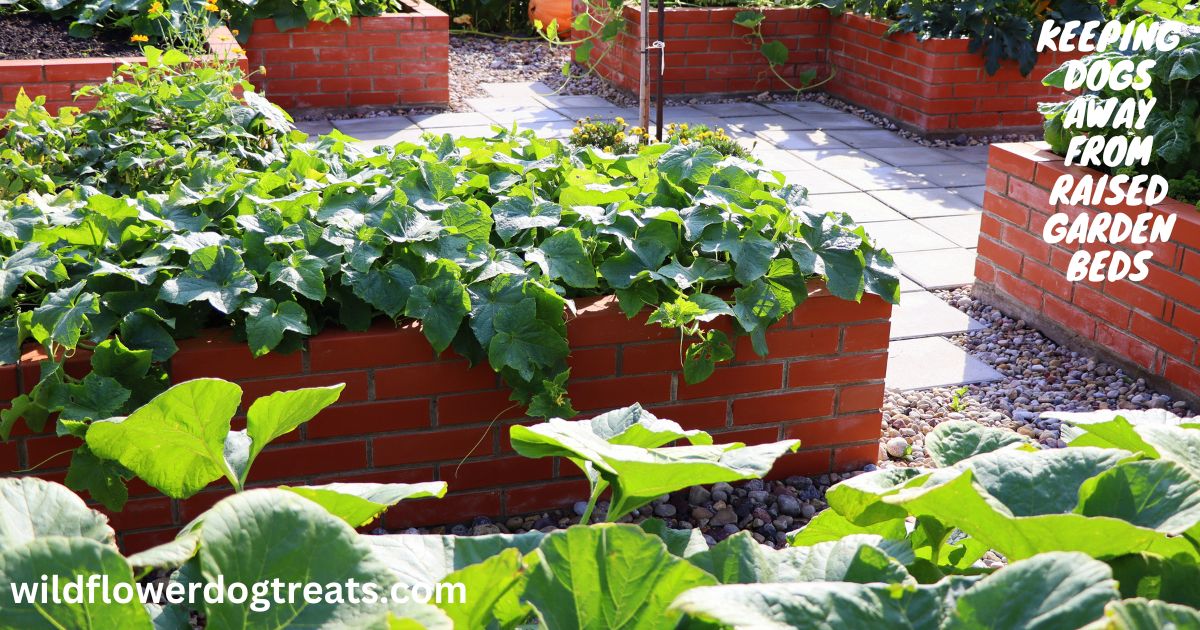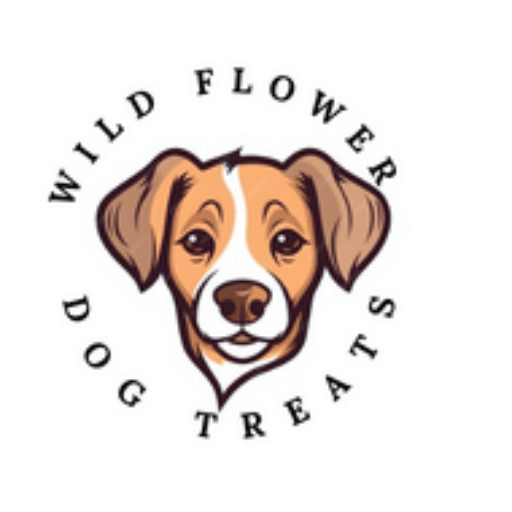To keep dogs out of raised garden beds, install barriers like fences or chicken wire. These structures will discourage dogs from entering the garden and protect your plants.
Having a beautiful raised garden bed can be a source of joy and pride for any gardener. However, the presence of dogs can pose a threat to the well-being of your plants. These furry companions may dig, trample, or even use the garden bed as a restroom, causing damage to your hard work.
Fortunately, there are effective methods to keep dogs out of raised garden beds. We will explore various practical solutions to protect your garden from these playful intruders, ensuring a flourishing and undisturbed gardening experience. Let’s dive in and learn how to maintain the tranquility of your garden sanctuary.
Understanding The Challenge
To prevent dogs from digging in raised garden beds, consider installing a low fence around the perimeter or using a natural deterrent such as citrus peels or vinegar. You can also train the dog to stay away by using positive reinforcement techniques and providing an alternative digging area.
Mesh covers can also be used to protect the garden beds.
Dogs are naturally curious creatures, and their fascination with raised garden beds can present a unique challenge. Recognizing their instincts and the possible risks they pose to your garden is crucial for finding effective ways to keep them at bay.
Natural Instincts of Dogs
Dogs have an inherent desire to explore and dig, making raised garden beds an attractive target. Their keen sense of smell drives them to investigate the scents of plants and soil, while the instinct to mark their territory may lead them to intrude into your garden space. Acknowledging these natural behaviors is key to developing strategies for prevention.
Potential Risks Posed by Dog Intrusions
Dog intrusions into raised garden beds can result in various detrimental effects. Trampling may damage delicate plants, and digging can uproot or destroy them. The presence of urine and feces introduces harmful bacteria and chemicals, posing a threat to plant health and potentially contaminating produce. Additionally, dogs chewing on plants can cause irreversible damage. Understanding these risks underscores the need to implement measures that discourage dogs from accessing the garden beds.
Choosing The Right Materials For Raised Garden Beds
When it comes to protecting your raised garden beds from curious pets, choosing the right materials is essential. To keep dogs out of raised garden beds, it’s important to consider deterrent materials, protective barriers, and fencing options that effectively deter dogs without harming them.
Deterrent Materials For Dogs
Natural deterrents such as citrus peels, cayenne pepper, or vinegar can be spread around the garden bed to discourage dogs from digging or entering the area. Another effective option is using white vinegar in a spray bottle to create a scent barrier around the garden bed. The strong smell is often enough to deter most dogs from approaching the area. Additionally, pine cones and mulch can be placed around the perimeter of the garden bed to create an uncomfortable surface for dogs to walk on, dissuading them from entering.
Protective Barriers And Fencing Options
Installing a physical barrier around the raised garden bed can effectively keep dogs out. Wire mesh or hardware cloth can be buried around the perimeter of the garden bed to prevent dogs from digging underneath. Additionally, chicken wire or decorative fencing can be erected around the garden bed to create a visual and physical deterrent for dogs. For a more aesthetically pleasing option, consider decorative trellises or metal garden edging that not only serves as a barrier but also enhances the visual appeal of the garden.
Implementing Practical Solutions
If you’re a garden enthusiast and a dog owner, you might have experienced the frustration of finding your raised garden beds disturbed by your furry friends. Fortunately, there are practical solutions you can implement to keep dogs out of your raised garden beds without harming them. By utilizing pet-friendly deterrents and strategic placement of scented elements, you can create a harmonious coexistence between your garden and your beloved pets.
Pet-friendly Deterrents And Repellents
When it comes to deterring dogs from entering your raised garden beds, there are several pet-friendly options to consider. For instance, cayenne pepper-based sprays can be applied to the perimeter of the garden beds to deter dogs due to their sensitive noses. Additionally, natural citrus-based sprays can be effective in repelling dogs while being safe for your plants. Another option is to use physical barriers such as decorative fencing or wire mesh around the garden beds to prevent access. These deterrents and repellents provide a humane way to protect your garden without causing harm to your pets.
Strategic Placement Of Scented Elements
Strategic placement of scented elements can also discourage dogs from entering your raised garden beds. Dogs have a strong sense of smell, so certain scents can act as natural deterrents. Placing aromatic plants like lavender, rosemary, or marigolds around the garden perimeter can create an olfactory barrier that dogs are less likely to cross. Additionally, using natural repellents such as vinegar or citrus peels strategically placed throughout the garden can help keep dogs at bay. By strategically leveraging scents that dogs find unpleasant, you can effectively discourage them from entering your garden beds.
Training And Behavioral Approaches
When it comes to preventing dogs from accessing raised garden beds, training and behavioral approaches can be highly effective in shaping their behavior. By utilizing positive reinforcement techniques and redirecting their behavior away from the garden beds, pet owners can establish boundaries while ensuring the well-being of their canine companions.
Positive Reinforcement Techniques
Positive reinforcement techniques involve rewarding desired behavior to encourage dogs to stay away from raised garden beds. When a dog exhibits appropriate behavior, such as staying outside the designated garden area, a treat or verbal praise acts as a positive reinforcer.## Unordered list
- Use high-value treats such as small pieces of meat or cheese to reward the dog for staying away from the garden beds.
- Consistently praise the dog when they exhibit the desired behavior, reinforcing the association between staying away from the garden beds and positive outcomes.
- Utilize clicker training to mark and reinforce the dog’s behavior when they comply with staying away from the designated area.
Redirecting Dog Behavior Away From Garden Beds
Redirecting dog behavior involves guiding dogs toward more appropriate activities and areas, diverting their attention from the raised garden beds.
- Install barriers or fencing around the garden beds to physically restrict access and provide an alternative area for the dog to explore and play.
- Regularly engage the dog in interactive play and exercise to redirect their energy and attention away from the garden beds, promoting a positive outlet for their natural instincts.
- Implement scent deterrents, such as citrus peels or vinegar, around the perimeter of the garden beds to discourage dogs from approaching the area.
“`
Maintenance And Regular Monitoring
Regular maintenance and monitoring are crucial for keeping dogs out of raised garden beds. By checking and repairing protective measures and incorporating long-term defense strategies, you can ensure your garden stays safe from your furry friends’ curious antics.
Checking And Repairing Protective Measures
Regular checks are essential to ensure that the protective measures around your raised garden beds are intact. Here are some steps to follow:
- Inspect Fencing: Regularly check the fencing around the garden bed for any damages or loose sections that dogs might exploit to gain access.
- Patch Up Holes: Fill in any holes or gaps in the fence to prevent dogs from squeezing through.
- Reinforce Barriers: If necessary, reinforce the barriers with additional stakes or supports to make them more secure.
- Repair Netting: If you are using netting, examine it for any tears or weak spots, and repair or replace as needed.
- Check Deterrents: Ensure that any deterrents like physical barriers, repellents, or motion-activated devices are functional and effective.
Incorporating Long-term Defense Strategies
While immediate protective measures are crucial, the long-term defense against dogs in your garden requires a different approach:
- Raised Garden Beds: Consider elevating your garden beds to a height that is difficult for dogs to reach, such as with a raised platform or deep bed design.
- Training: Provide your furry companions with proper training and positive reinforcement to deter them from entering the garden area.
- Boundary Training: Train your dogs to recognize and respect specific boundaries around the garden beds to prevent them from straying into the area.
- Alternative Play Area: Create a designated play area for your dogs elsewhere in the yard to redirect their attention from the garden beds.
Frequently Asked Questions For How To Keep Dogs Out Of Raised Garden Beds
How Can I Keep Dogs Out Of My Raised Garden Beds?
You can use physical barriers like fences or chicken wire around the garden beds, train your dog to stay away from the area, or use deterrents like citrus peels or commercial repellents to discourage them from entering.
What Are Some Dog-friendly Alternatives To Raised Beds?
Consider creating a dedicated space for your dog to play, such as a dog-friendly area with toys, shade, and water nearby. You can also create a sensory garden or designated digging area for your dog to enjoy.
How Do I Protect My Garden Without Harming The Dogs?
You can use natural deterrents such as cayenne pepper, vinegar, or citrus scents that are unpleasant to dogs but harmless to plants. Additionally, using physical barriers like raised beds or fencing can protect your garden without causing harm to your pets.
Conclusion
Keeping dogs out of raised garden beds is essential for protecting your plants. By using barriers, natural deterrents, and training techniques, you can effectively address this issue. Remember to consistently monitor and adjust your methods as needed to ensure a dog-friendly and garden-friendly environment.
Protect your garden with care and consideration.




